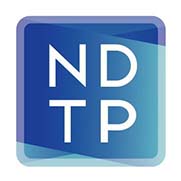Higher Specialist Training in Medical Ophthalmology
Overview
The programme of specialist training in Medical Ophthalmology is designed to equip doctors to work in the hospital, community, both or in the independent sector. The developments in the training programme are a response to the changing needs of the population which have evolved in the last 10 years and the specialist programme is focused on meeting those needs.
The national Specialist Training Programme in Medical Ophthalmology is five years in duration. The curriculum is competence-based and consists of three years basic training (BMT1, BMT2 & BMT3)and two years of higher training (HMT4 & HMT5) in the subspecialties of paediatrics, glaucoma and medical retina.
On successful completion of the Basic Specialist Training in Medical Ophthalmology (BMT), requires passing the MRCSI Ophth exam, trainees can compete to enter the Higher Specialist Training in Medical Ophthalmology (HMT) programme provided they meet the selection criteria.
Progression is based on performance in basic training and by competitive interview. Minor adjustments (5-7% of total score) may be made to the scorecard as required during each selection process.
Application & Entry
After successful completion of the 3 years Basic Specialist Training in Medical Ophthalmology*, trainees can compete to enter the Higher Specialist Training programme provided they meet the selection criteria. Progression is based on performance in core training and by competitive interview.
Minor adjustments (5-7% of total score) may be made to the scorecard as required during each selection process.
*The HMT selection process for 2021 will be the final opportunity for applications from trainees who completed the basic specialty training programme (i.e. prior to the reconfiguration of basic training into separate medical and surgical pathways). From 2022 onwards trainees must have completed basic medical training in ophthalmology to be eligible to apply for HMT.
Curriculum
The purpose of the Higher Specialist Training in Medical Ophthalmology programme is to provide in-depth training to equip doctors with skills and expertise they require to independently practice as ophthalmologists. The programme has a modular approach and is framed around the three subspecialties located at the core of current and future patient demand - medical retina, glaucoma and paediatric ophthalmology.
Trainees, irrespective of preference and future career choice, need to complete all three modules to successfully complete their training. To reflect the diversity of the future career path of a Consultant Medical Ophthalmologist, training is located in hospital-based training units and will also take place in community clinics as the new Consultant Medical Ophthalmologists take up their posts and non-acute facilities are developed.
The European Board of Ophthalmology Diploma (EBOD) Exam and Higher Medical Training Modular sub-specialty Structured Oral Examination (SOEs) are the formal exit appraisals for the HMT in Ophthalmology programme and for doctors to be eligible for the Specialist Registrar of the Medical Council in the Division of Ophthalmology.
Download the ICO Specialist Training in Medical Ophthalmology curriculum (PDF Document)
Career Options
Medical ophthalmologists have varying roles in health care in Ireland. Consultant Medical Ophthalmologists work in the acute and/or non-acute setting and lead the Integrated Eye Care Team.
Graduates of the programme are trained to deliver general ophthalmology care with subspecialty expertise in glaucoma, paediatric ophthalmology and medical retina. Graduates may opt to continue with further subspecialty Fellowship training and practice in either the public or the private sector. Many ophthalmologists combine private practice with their HSE role.
Given the frequency of ocular involvement in many systemic diseases, ophthalmologists often work in close collaboration with other specialists including diabetologists, rheumatologists, neurologists, ENT and maxillo-facial surgeons as well as paediatricians and geneticists.
There has been significant investment in the specialty in recent years due to demand for specialists in this area. This will continue with the roll out of the Integrated Eye Care Team and appointment of new Consultant Medical Ophthalmologist posts nationally.
Thinking of a Career in Ophthalmology - a short guide from the Irish College of Ophthalmologists
Flexible Training
The medical workforce is changing and, over recent years, numerous reports have pointed to the importance of providing flexible working arrangements for doctors.
The ICO understand the importance of work-life balance. We support flexible timetables and advocate for your continued health and wellbeing throughout your career in medicine.
For further information and to complete an application, please visit HSE National Flexible Training Scheme Guide which sets out details of the Scheme and provides information for trainees, training bodies and employers about the programme.
Applications for the scheme are open from 2nd September to 8th November 2024.
Funding Support
Financial Supports
There are currently three schemes in operation which provide financial supports to NCHD's and Consultants, funded by the NDTP.
Details of the schemes can be found on the HSE website .


